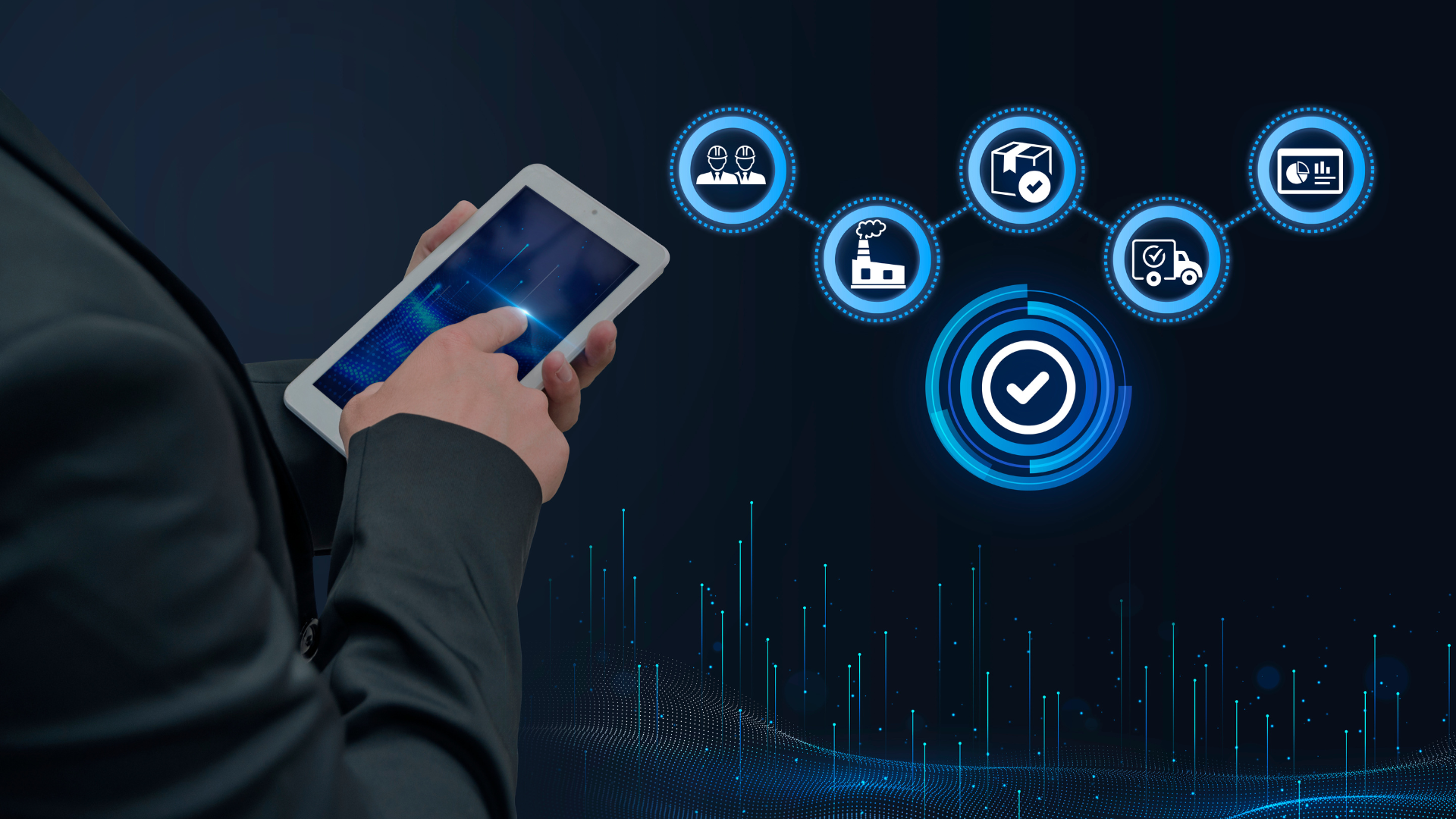One careless click can cost your business more than just data — it can cost trust, reputation, and serious money.
That’s why choosing the best antivirus software isn’t just an IT decision. It’s a business-critical move, especially if you’re running a hybrid or remote startup.
Whether you’re working from a laptop in Singapore or spinning up virtual desktops in Sydney, one thing remains constant — your devices need protection.
But here’s the challenge: With so many antivirus programs out there (and dozens claiming to be the best), how do you choose the right one?
What to look for in antivirus software in 2025
The right antivirus solution should do more than just scan for malware. It needs to work in real time, adapt to new risks, and play nicely with how your team works — especially if you’re managing distributed employees across multiple countries and devices.
Here’s what to look for in a solid antivirus protection tool this year:

1. Real-time protection
You don’t have time to run manual scans every day. You need antivirus apps that detect and block threats as they happen — not after the damage is done.
Real-time protection is your first line of defense against ransomware, phishing, and zero-day attacks. Make sure your antivirus program includes this by default (some free antivirus tools don’t).
2. Malware protection that covers everything
From email attachments to drive-by downloads and shady browser extensions, malware can sneak in from anywhere. Look for a security software that:
- Detects known and unknown malware
- Includes web protection while browsing
- Scans USB drives and external devices
- Offers behavior-based detection, not just signature-based
3. Cross-platform support
Your team is probably using a mix of Windows, macOS, and even mobile devices. A good antivirus solution in 2025 should cover all platforms, without charging you separately for each one.
If your current setup only protects Windows PCs, it’s time to upgrade.
4. EDR vs antivirus — what’s the difference?
EDR (Endpoint Detection and Response) is different from traditional antivirus. EDR tools are more advanced and help detect suspicious activity across your devices, even before a file is flagged as malicious.
Think of it like this:
- Antivirus = basic lock on your door
- EDR = home surveillance with motion sensors
If your team handles sensitive customer data or operates in regulated industries, consider combining antivirus protection with EDR software.
💡 Read more: EDR vs Antivirus: A Side-by-Side Comparison for SMBs
5. Ease of use and automation
Let’s face it — most people won’t bother using software that feels like a chore.
You want an antivirus app that:
- Has a simple, clean dashboard
- Runs silently in the background
- Automates updates and scans
- Doesn’t slow down your system
If it takes more than a few clicks to configure, your employees probably won’t use it.
6. Low system impact
Antivirus shouldn’t feel like it’s eating up your RAM just to keep you safe. Choose a lightweight solution that works quietly behind the scenes. This is especially important for remote teams who may not have access to high-powered laptops.
Independent test labs like AV-Comparatives and AV-Test can help you compare how much different antivirus software impacts performance. These third-party software reviews are gold when making your decision.
7. Customer support and updates
Threats evolve. So should your antivirus.
Look for antivirus programs that offer:
- Regular virus definition updates
- 24/7 customer support
- Active development and threat research
And if you’re using party antivirus software that hasn’t been updated in a year — it’s time to move on.
Our top antivirus picks for 2025
5 best antivirus software for Windows PCs
- Norton 360 Deluxe
Why it stands out: Norton 360 Deluxe provides comprehensive security features, including real-time malware protection, a secure VPN, password manager, and parental controls. It’s designed to offer a holistic security solution for individuals and families.
Key features:
- Real-time threat protection
- Secure VPN for online privacy
- Password manager to store and manage credentials
- Parental control tools
- Cloud backup for PC
Ideal for: Users seeking an all-in-one security suite with additional privacy and family safety tools.
- Bitdefender Antivirus Plus
Why it stands out: Bitdefender offers excellent malware protection with minimal system impact. It includes multi-layer ransomware protection and a secure browser for online transactions.
Key features:
- Advanced threat defense
- Multi-layer ransomware protection
- Web attack prevention
- Anti-phishing and anti-fraud features
Ideal for: Users looking for strong protection without compromising system performance.
- McAfee Total Protection
Why it stands out: McAfee Total Protection offers a wide range of features, including identity theft protection, secure VPN, and performance optimization tools. It’s suitable for users who need comprehensive coverage across multiple devices.
Key features:
- Identity theft protection
- Secure VPN
- Performance optimization tools
- Password manager
Ideal for: Users seeking extensive protection and performance tools for multiple devices.
- Microsoft Defender Antivirus
Why it stands out: Built into Windows 10 and 11, Microsoft Defender offers solid real-time protection without additional cost. It’s a convenient option for users who prefer integrated security solutions.
Key features:
- Real-time threat detection
- Firewall and network protection
- Parental controls
- Regular updates through Windows Update
Ideal for: Users looking for basic, built-in protection without installing third-party software.
- Avast Free Antivirus
Why it stands out: Avast provides a robust free antivirus solution with features like Wi-Fi security scanning and a password manager. It’s a good starting point for users seeking essential protection.
Key features:
- Real-time malware protection
- Wi-Fi security scanning
- Password manager
- Behavioral analysis to detect new threats
Ideal for: Users seeking a free antivirus solution with essential features.
7 best antivirus software for Mac users
Many people assume Macs are immune to viruses — but that’s no longer true. In 2025, targeted attacks on macOS devices are increasing, especially as more professionals work remotely and handle sensitive data.
- Intego Mac Internet Security X9
Why it stands out:
Built exclusively for macOS, Intego offers a native experience that protects against Mac-specific threats. It goes beyond basic antivirus apps by also protecting your network and offering intelligent firewall features.
Key features:
- Antivirus and anti-spyware for macOS
- Real-time scanning
- Intelligent firewall with customizable settings
- Scheduled scans and automatic updates
Ideal for:
Mac users who want a purpose-built antivirus program with deep macOS integration.
- Bitdefender Antivirus for Mac
Why it stands out:
Bitdefender for Mac brings the same powerful engine it uses for Windows to Mac, with real-time threat detection and excellent independent test scores.
Key features:
- Multi-layer ransomware protection
- Adware blocker
- Time Machine protection against backup tampering
- Minimal CPU and memory usage
Ideal for:
Mac users who want strong antivirus protection with minimal system slowdown and strong third-party validation.
- Malwarebytes Premium
Why it stands out:
Malwarebytes is trusted for its strong focus on modern threat detection and remediation. It uses behavior-based analysis to catch even the newest strains of malware. Its clean interface and real-time protection make it a favorite among small teams and solo founders.
Key features:
- Advanced malware, ransomware, and spyware protection
- Web protection for phishing and malicious sites
- Scheduled and on-demand scans
- Minimal system impact
- Clean and simple UI for non-tech users
Ideal for:
Users who want a lightweight antivirus program focused on effective malware protection and ease of use.
- Kaspersky Premium
Why it stands out:
Kaspersky consistently ranks high in independent test labs for its detection rates and comprehensive security features. The premium version includes identity protection, password management, and even smart home monitoring tools.
Key features:
- Real-time antivirus and anti-phishing protection
- Secure VPN with unlimited traffic
- Data leak detection and password manager
- Safe Money browser for secure online banking
- Cross-platform coverage (Windows, macOS, Android, iOS)
Ideal for:
Users who want a trusted, all-in-one antivirus solution with premium privacy and identity tools.
- Avira Prime
Why it stands out:
Avira Prime is more than just antivirus — it’s a complete security software bundle with performance tools, a VPN, and system optimizers. It’s well-suited for entrepreneurs who want one dashboard for everything.
Key features:
- Real-time virus, ransomware, and web threat detection
- Unlimited VPN
- System speed-up and driver updater tools
- Password manager
- App and software updater to patch vulnerabilities
Ideal for:
Users looking for a full-featured party antivirus package with both security and performance tools in one subscription.
- Sophos Home for Mac
Why it stands out:
Sophos provides business-grade security to home users, with remote device management and AI-driven threat detection. Its clean interface makes it ideal for users who want simplicity without sacrificing protection.
Key features:
- AI-based threat detection
- Web filtering and parental controls
- Remote management of up to 10 devices
- Real-time antivirus scanning
Ideal for:
Families and remote workers who want centralized control and user-friendly antivirus solutions.
Choosing the right antivirus software for Mac isn’t about hype — it’s about independent test results, ease of use, and how well the tool integrates with your workflow. Whether you’re a solo founder or managing a remote team on macOS, the right protection matters.
- ESET NOD32 Antivirus
Why it stands out:
ESET NOD32 is known for its fast performance, advanced heuristics, and proactive detection technology. It’s built for users who want strong, behind-the-scenes protection without constant pop-ups or slowdowns. Perfect for startups that need reliable security without the bloat.
Key features:
- Real-time malware, ransomware, and phishing protection
- Advanced machine learning-based threat detection
- UEFI scanner for deep system-level threats
- Low system resource consumption
- Gamer mode to minimize interruptions during fullscreen use
Ideal for:
Tech-savvy users and remote teams who want efficient antivirus protection that runs quietly and effectively in the background.
Frequently asked questions (FAQs)
Do I really need antivirus software in 2025?
Yes, absolutely — even if you’re tech-savvy or using a Mac. Threats today go far beyond traditional viruses. Think ransomware, spyware, and phishing attempts. A good antivirus solution protects you in real time, stops suspicious behavior, and keeps your devices and data safe no matter where you’re working from.
What’s the difference between free antivirus and paid versions?
Free antivirus software usually offers basic protection like virus scanning and removal. It’s a great starting point but often lacks key features such as:
- Real-time protection
- Ransomware defense
- Secure VPNs
- Identity theft monitoring
- Customer support
Paid antivirus programs offer more robust security, regular updates, and additional tools for privacy and performance.
Is Microsoft Defender enough for Windows PCs?
Microsoft Defender has improved a lot and offers decent antivirus protection out of the box. It provides basic malware defense, firewall controls, and frequent updates. But if you’re handling sensitive business data, or want advanced malware protection and identity tools, pairing it with a third-party software might be a safer move.
Can antivirus software slow down my computer?
Some antivirus apps can be resource-heavy, especially older or poorly optimized ones. But most modern solutions are designed to be lightweight. Look for independent test results on system performance or choose tools known for minimal impact like Bitdefender or Sophos.
How do I disable antivirus temporarily?
Each antivirus program has its own process, but generally:
- Open the antivirus dashboard or settings menu
- Find the protection settings (often labeled “real-time protection”)
- Toggle off the shield or temporarily disable scanning
Make sure to re-enable protection after completing your task. Knowing how to disable anti virus is useful for troubleshooting — but do it with caution.
What is the difference between EDR and antivirus?
EDR (endpoint detection and response) is more advanced than traditional antivirus. While antivirus focuses on detecting and removing threats, EDR tools go further by monitoring endpoints for suspicious behavior, providing forensic insights, and responding automatically.
If you run a startup that handles a lot of sensitive data or you need detailed visibility over your devices, using both EDR and antivirus might be your best bet.
Protect your devices before threats find them
Cyber threats don’t wait — and neither should you. Whether you’re working from home, the office, or halfway across the world, having the right antivirus software in place is your first step toward protecting your business.
At Esevel, we help fast-growing companies in Asia Pacific simplify and secure their IT operations. Our platform handles everything from global laptop provisioning to real-time IT support — and yes, that includes helping you manage and fortify your IT firewall.






